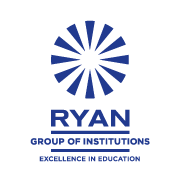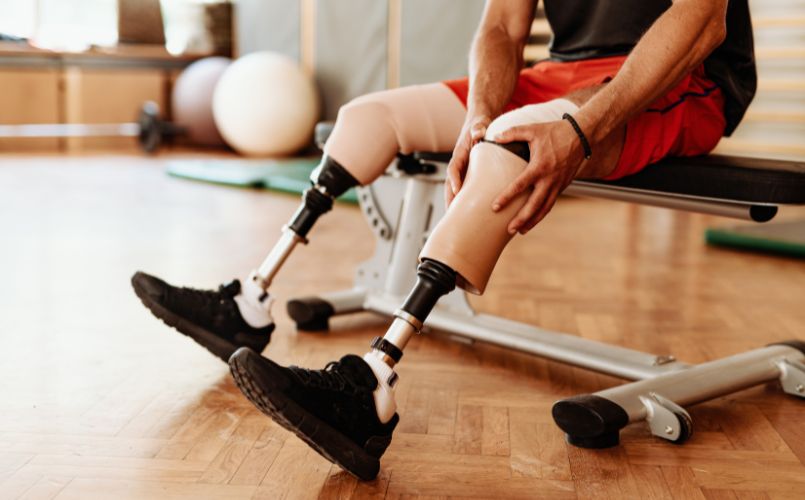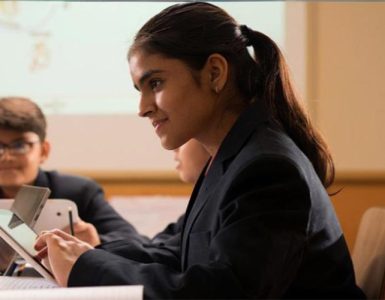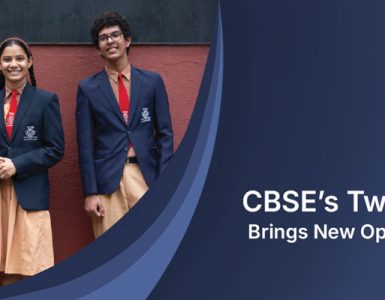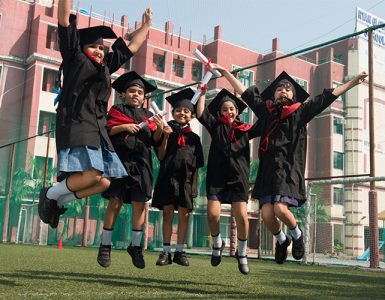Physical education in India is experiencing a significant shift towards inclusivity, driven by the growing acceptance of adaptive sports. These tailored sports programs cater to the requirements of students with disabilities ensuring that all children have equal opportunities to engage in physical activities and reap its benefits. This movement goes beyond sports; it represents a push for inclusivity, equality and the fundamental right to engage in play regardless of physical constraints.
The introduction of sports in India marks a progressive step towards recognizing and accommodating the diverse needs of students. By customizing sports activities to accommodate disabilities schools are creating an environment that celebrates diversity and values each student’s unique capabilities. This initiative underscores an increasing awareness among educators and policymakers about the role of physical education in nurturing well rounded children emphasizing that access to sports should be universally accessible.
This inclusive approach yields advantages that go beyond physical fitness by bolstering cognitive, emotional and social growth. Participation in sports has been proven to enhance self confidence, foster teamwork and refine communication skills among students with disabilities. Furthermore it plays a role, in dismantling barriers, dispelling stereotypes and fostering mutual understanding and empathy among all students.
The Current State of Adaptive Sports in Schools in India
The inclusion of sports in the educational curriculum of Indian schools represents a notable step towards fostering inclusivity in physical education. Despite the hurdles related to resource management and infrastructure development numerous educational institutions nationwide are acknowledging the significance of incorporating sports to advocate equality and involvement for all students, including those with disabilities.
The array of sports initiatives in India is as varied as the student population they cater to encompassing activities like wheelchair basketball sitting volleyball, boccia and modified track and field events. These programs are customized to accommodate physical abilities ensuring that each student can actively partake in meaningful physical exercises. The essence of sports transcends mere physical advantages; it also profoundly impacts students mental and social well being. Engaging in sports cultivates a sense of community boosts self confidence and nurtures teamwork and leadership qualities.
However the implementation of these initiatives presents its set of challenges. Educational institutions often encounter obstacles such as a scarcity of specialized equipment inadequate teacher training and limited awareness regarding the advantages of adaptive sports. Nevertheless the dedication, to inclusivity has sparked solutions.
Collaborations with nongovernmental organizations (NGOs) and private sectors have become crucial in providing essential resources and expertise. Moreover government initiatives focused on promoting sports for individuals with disabilities are now offering logistical assistance to schools that are willing to embrace adaptive sports programs.
The positive outcomes of these endeavors are evident in the experiences of students who can now participate in sports activities alongside their peers for the time. Educators have noted enhancements in students’ confidence, social integration and overall enthusiasm for school. While the landscape is still evolving it showcases the potential of sports to enhance educational experiences and cultivate a more inclusive society.
Obstacles and Resolutions in Implementing Adaptive Sports Programs
Although the effort to incorporate sports into India’s educational system is commendable even if it comes with its share of challenges. These obstacles vary from limitations to societal attitudes necessitating strategic solutions for the successful execution of adaptive sports programs within schools.
Challenges Encountered by Educational Institutions
- Infrastructure and Accessibility: Many schools lack facilities and specialized equipment tailored for adaptive sports activities, such as accessible sports fields and suitable indoor spaces, for year round engagement.
- Awareness: There is a gap in the training of educators and coaches in adaptive sports. A lack of understanding and awareness regarding the needs of students with disabilities may result in support and opportunities for these individuals.
- Funding and Resources: Introducing sports programs often entails acquiring extra funding for equipment, training and adjustments to current sports facilities. This financial requirement can pose a challenge for many educational institutions.
- Cultural and Social Obstacles: perceptions and stereotypes about disabilities might impede the acceptance and integration of adaptive sports within school settings. This may impact the willingness of students with disabilities to participate well as the overall backing from the school community for such initiatives.
Innovative Approaches
To address these obstacles, educational institutions, nongovernmental organizations (NGOs) and governmental bodies have started implementing innovative tactics;
- Partnerships and Collaborations: Establishing partnerships with NGOs, private enterprises and other entities has enabled schools to access resources, expertise and financial support needed to carry out adaptive sports programs. These collaborations often provide equipment and training required for successful implementation.
- Professional Growth: Investing in the development of teachers and coaches specifically for adaptive sports is essential. Participation in workshops, seminars or exchange programs can improve comprehension levels well as skills, among educators to ensure they are adequately prepared to assist all students.
- Engaging the Community, Spreading Awareness: Educating both the school and the wider community on the advantages of sports can help break down social and cultural barriers. Involving parents, students and community leaders in awareness initiatives and activities fosters inclusivity and backing for sports programs.
- Utilizing Technological Advances: Technology can significantly enhance accessibility in sports. Whether through reality that replicates diverse sports settings or apps offering training and assistance technology presents innovative solutions to overcome some of the physical and logistical hurdles in adaptive sports.
Despite the challenges faced the progress seen in implementing sports programs in Indian schools showcases the resilience and ingenuity of educators, communities and students themselves. By addressing these obstacles with tailored solutions schools can establish inclusive environments that empower students of all capabilities to engage in sports promoting a sense of belonging, accomplishment and community.
Inspiring Stories of Indian Athletes in Adaptive Sports
India has produced many athletes in the area of adaptive sports. Their journeys marked by hurdles, perseverance and triumphs not only motivate those involved in adaptive sports but also resonate with individuals, from various walks of life.
These sportspersons have not just represented India on the global stage but has also played a significant role in changing perceptions about disabilities and demonstrating the transformative impact of sports.
Deepa Malik: An inspiring champion in Indian adaptive sports Deepa Malik made history as the first Indian woman to secure a medal at the Paralympics. Her silver medal in shot put at the 2016 Rio Paralympics showcases her unwavering determination and resilience. Despite being paralyzed from the waist down, Deepa’s journey is a compelling story of triumphing over physical challenges to gain international acclaim. Her accomplishments have opened doors for disabled athletes proving that with dedication there are no boundaries to what can be accomplished. Devendra Jhajharia: Another source of inspiration is Devendra Jhajharia, India’s decorated Paralympian. Specializing in javelin throw Devendra has clinched gold medals at both the 2004 Athens and 2016 Rio Paralympics setting world records along the way. Born with a disability that resulted in the amputation of his left hand Devendra’s successes underscore how adaptive sports can empower individuals. His journey from a village in Rajasthan to the Paralympic podium emphasizes the significance of accessible sports facilities and support for athletes, with disabilities. Mariyappan Thangavelu: His remarkable victory in the jump at the 2016 Rio Paralympics stands out as truly inspiring. Despite facing a leg injury in life Mariyappan refused to let his disability shape his future. Instead he exceeded expectations and became a symbol of resilience and determination. His journey serves as a motivator for young athletes demonstrating that obstacles can be turned into opportunities for success.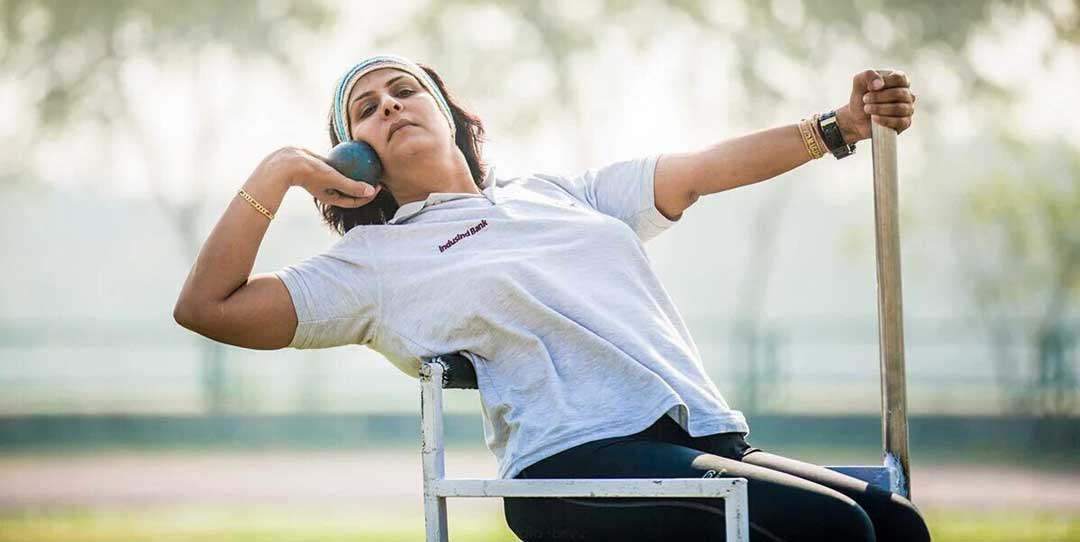
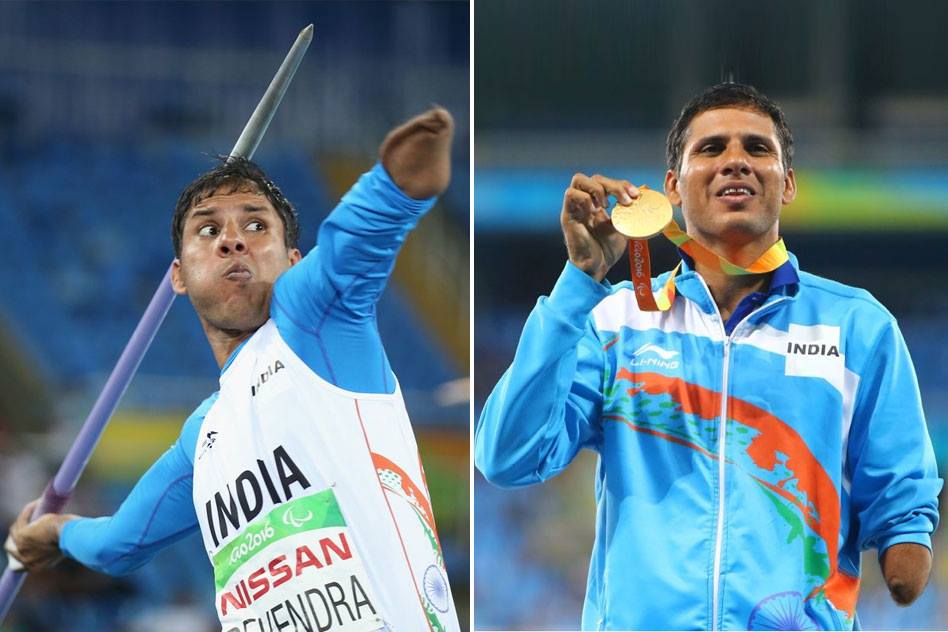
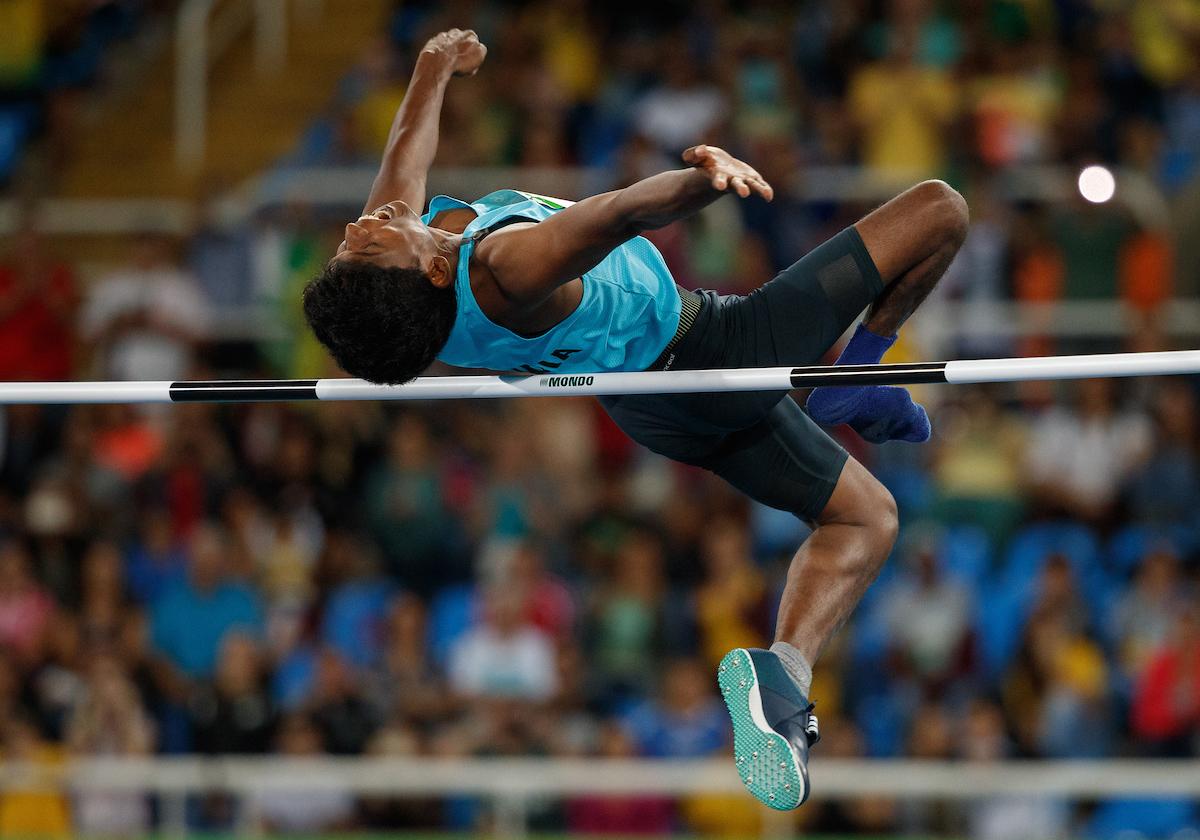
These athletes, including others are not only champions in their sports but also advocates for inclusivity and accessibility in athletics. Their stories encourage a generation of disabled athletes to pursue their aspirations and challenge societal views on disability. They embody the essence of sports, showcasing human resilience, the pursuit of excellence and the breaking of barriers.
By celebrating these narratives we not recognize the accomplishments of these athletes but also highlight the crucial role of adaptive sports in promoting an inclusive society. Let their experiences inspire us to push for and back efforts to incorporate sports into all aspects of education and community life.
Advocating for Inclusive Sports Programs
The path, to establishing an inclusive environment within schools particularly regarding physical education is a collective endeavor.
It takes a team effort from teachers, parents and the broader community. Supporting and promoting sports programs is crucial for their success and longevity. Here’s how different groups can pitch in;
For Teachers; Empowering Through Education and Training
Teachers are players in this important journey. By receiving training in adaptive sports educators can effectively involve all students in physical education programs. It’s vital for teachers to;
- Participate in development opportunities related to adaptive sports.
- Create an inclusive classroom environment that encourages participation from every student.
- Use adaptive equipment and adjust activities to accommodate various needs.
- Advocate for the integration of adaptive sports into the schools curriculum and extracurricular offerings.
For Parents; Advocacy and Engagement
Parents have a role in advocating for inclusive sports programs. Their involvement can greatly impact the implementation and expansion of sports in educational settings. Parents can;
- Work together with schools to understand their child’s requirements and advocate for programs.
- Join or establish parent teacher associations to promote the inclusion of adaptive sports.
- Share information about adaptive sports resources, with the school community.
Let’s celebrate and champion the accomplishments of every student involved in sports to nurture a culture that embraces diversity.
Engaging the Community; Establishing a Network of Assistance
- The community’s support plays a vital role in establishing an environment that welcomes adaptive sports. This may involve;
- Businesses and organizations providing sponsorship for adaptive sports equipment or facilities. Community members offering their time as coaches or assisting in coordinating sports activities.
- Media platforms showcasing success stories and the advantages of sports programs.
Embracing an Inclusive Atmosphere
Shaping a sports setting necessitates a change in perspective, where emphasis is placed on abilities rather than disabilities. This entails;
- Educating students and the community on inclusivity and the significance of sports.
- Hosting inclusive sports events that enable students with varying abilities to take part.
- Encouraging students without disabilities to engage in adaptive sports fostering empathy and mutual understanding.
Advocacy for and backing of inclusive sports initiatives are essential to guaranteeing that each student can access the benefits of physical education. Through efforts educators, parents and the community can establish a more inclusive, supportive and empowering environment, for all students.
Envisioning the Future of Adaptive Sports in India
Looking ahead at the future of sports in India reveals tremendous potential, not only for the athletes benefiting directly from these initiatives but also for the broader societal push towards inclusivity and equality in sports and other aspects. Various crucial areas emerge as vital for advancing and nurturing sports within educational settings and the community at large.
Technologically Enhanced Accessibility
The progress in technology holds promise for transforming adaptive sports making them more accessible and enjoyable for participants. Whether its designed prosthetics and wheelchairs for competitive use or digital tools like apps and platforms offering virtual coaching and support technology has the power to bridge accessibility gaps and improve training. Schools and sports bodies must keep pace with these advancements by integrating them into their programs to elevate the experience and performance of athletes with disabilities.
Policy Backing and Financial Support
The sustainability and growth of sports initiatives rely heavily on policy backing and financial aid from both governmental entities and private sectors. Continuous advocacy is essential to ensure that inclusive sports receive recognition in national sporting policies along with designated funding for infrastructure development training opportunities and organized events. This support not bolsters existing programs but also fosters the creation of new ones, throughout the country.
To create a culture that appreciates and encourages sports it’s essential to engage with the community continuously and raise awareness. Recognizing the accomplishments of athletes with disabilities organizing sports gatherings and incorporating adaptive sports into popular media are some effective methods to nurture a supportive atmosphere. Schools collaborating with profit organizations and local community groups can take the lead in these initiatives to highlight the advantages of adaptive sports, for individuals and society at large.
